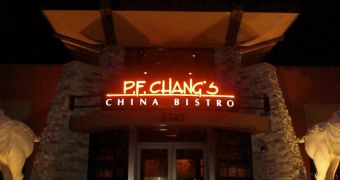Rick Federico, CEO of P.F. Chang's, announced on Thursday that all their locations in the continental US were moved to a manual credit card imprinting system.
The decision has been taken after a large amount of credit cards went up for sale on an underground forum and, after some investigation, it resulted that all of them had been used at P.F. Chang’s from the beginning of March until May 19.
The security breach was made known to the company this week, on Tuesday, by the United States Secret Service, and the company immediately announced that an inquiry had been initiated in order to learn about the magnitude of the breach.
It appears that only restaurants in the continental United States have been affected, at locations in Florida, Maryland, New Jersey, Pennsylvania, Nevada and North Carolina.
According to the CEO’s statement, both the United States Secret Service and a team of third-party forensics experts are involved in the investigation that concluded that data had been compromised.
However, at the moment, the inquiry cannot identify the credit and debit cards whose data got in the hands of the cybercriminals.
"Because we are still in the preliminary stages of our investigation, we do not yet know which credit or debit cards may be involved. P.F. Chang's has notified the credit card companies and is working with them to identify the affected cards. We encourage you to monitor your accounts and to report any suspected fraudulent activity to your card company."
The current payment method used at the P.F. Chang's locations in the continental US is the old-school way to process card information.
Processing the card information with a manual imprinter involves transferring the card details to a carbon paper slip that is later processed at the bank.
It works with conventional cards which have raised numbers that can be captured by the imprinting device; chip-based cards do not have this feature and cannot be processed by such machines.
The advantage of the method consists in the fact that there is no digital risk involved. The merchant, however, has to make the charge at a later time, when the slips are taken to the bank.
Also, there is no way to determine whether payment from a card is valid until the information reaches the bank.
P.F. Chang's turned to manual card imprinters as a temporary solution, to ensure that customers can still use credit and debit cards safely in their locations.

 14 DAY TRIAL //
14 DAY TRIAL //